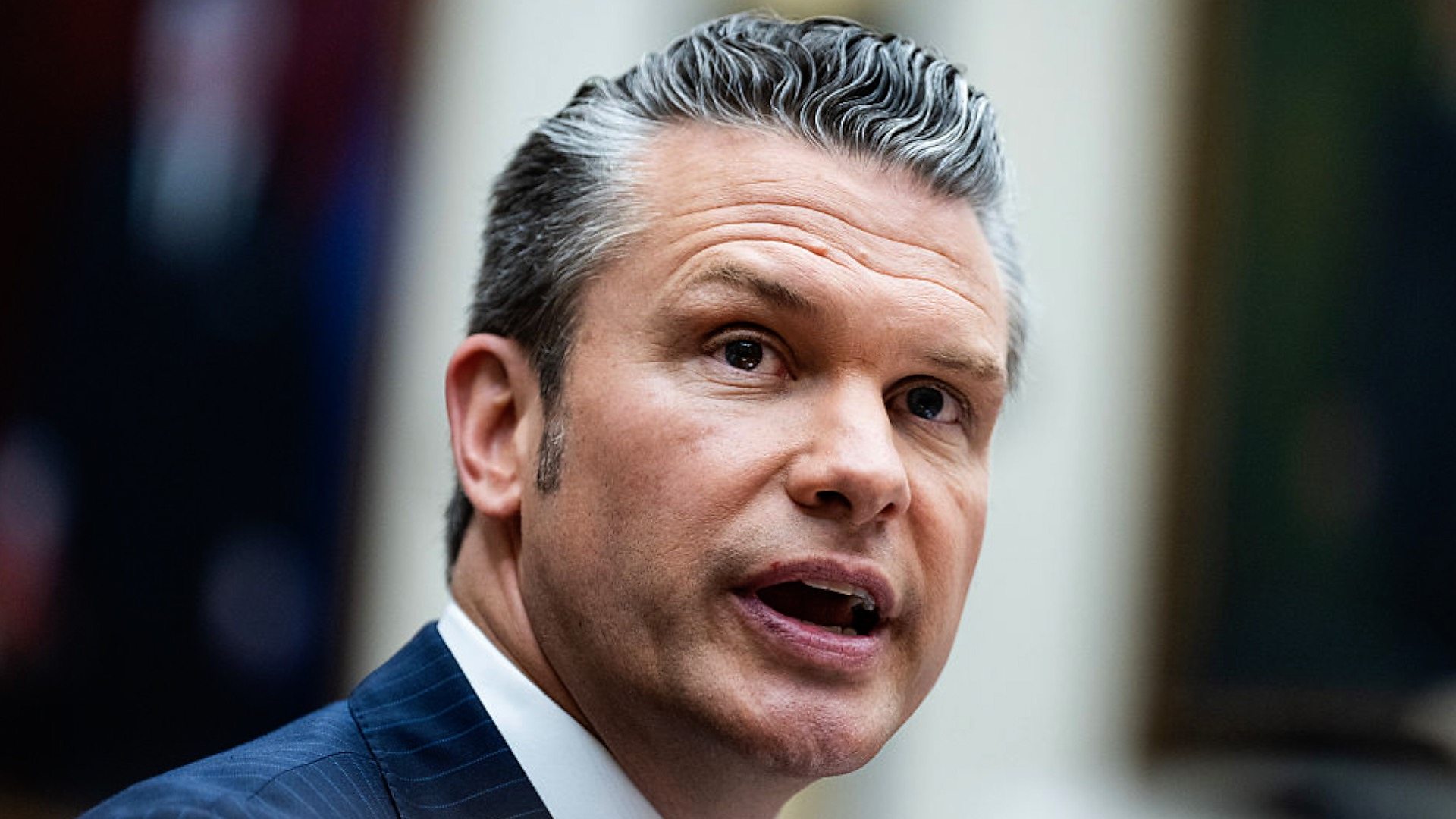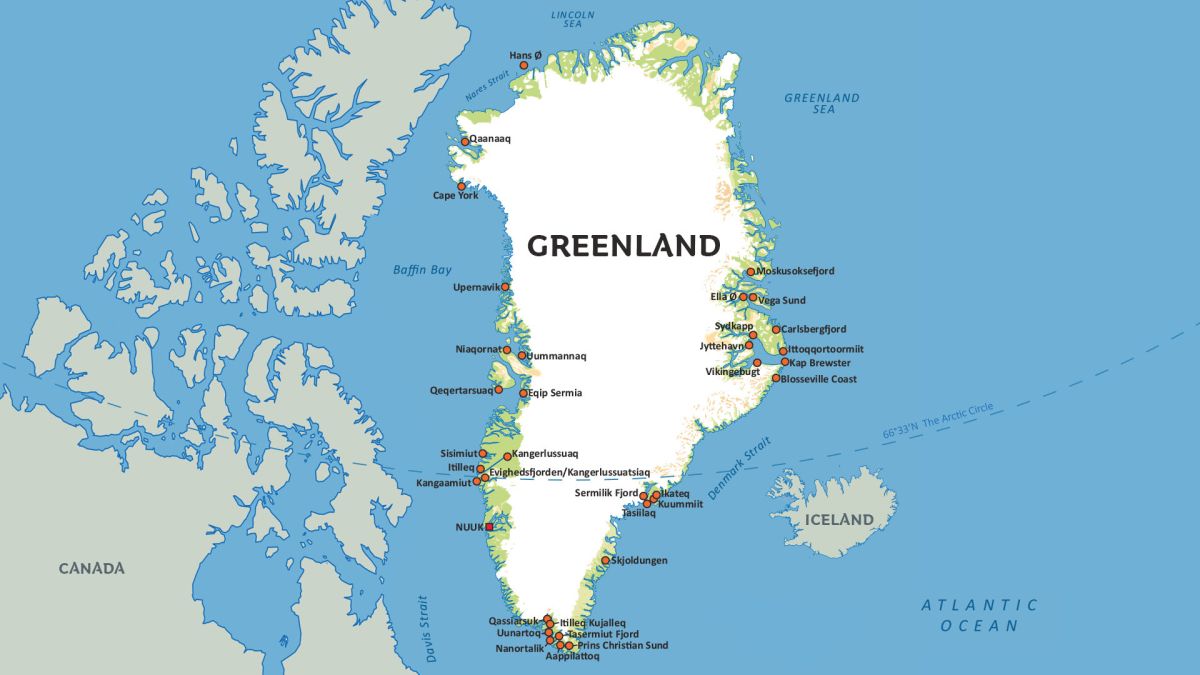During a recent testimony in front of the House Armed Services Committee, U.S. Defense Secretary Pete Hegseth made waves by refusing to deny that the United States had plans to take Greenland by force. This startling exchange took place when Rep. Mike Turner (R-OH) directly asked Hegseth whether the Pentagon had plans to invade the Danish territory, following longstanding interest from President Donald Trump in securing Greenland for the United States.
The incident raises significant concerns about the true nature of U.S. foreign policy toward the autonomous island, its geopolitical implications, and the role of the U.S. military in the pursuit of territorial expansion.
Hegseth's testimony was prompted by questioning from Rep. Turner, who sought clarification on remarks made by the defense secretary regarding the security of Greenland. Turner, visibly alarmed, pressed Hegseth to confirm that there were no active plans at the Pentagon for military action against the island.
Despite his best efforts to deflect the query, Hegseth's response remained vague, adding fuel to growing speculation about the potential for U.S. military action.
“I just want to help you out because people try to, you know, twist your words,” Turner began, attempting to ensure clarity. “You are not confirming in your testimony today that at the Pentagon, there are plans for invading or taking by force Greenland, correct? That is not your testimony today?”
Hegseth, evading a direct answer, replied: “All my testimony is that the Pentagon has plans for any number of contingencies.”
Turner, not satisfied with the answer, pressed further: “It is not your testimony today that there are plans at the Pentagon for taking by force or invading Greenland, correct?”
The exchange reached a tense climax when Turner sharply stated, “Because I’m sure as hell hope that it is not your testimony.”
In a seemingly evasive response, Hegseth finally stated, “We look forward to working with Greenland to ensure that it is secured from any potential threats.” His refusal to explicitly reject the possibility of a military operation in Greenland left many in the room, and around the world, uneasy about the U.S. government’s true intentions toward the island.
Greenland, an autonomous territory of Denmark, has long been a focal point in global geopolitical struggles due to its strategic location in the Arctic. Its proximity to vital shipping routes, as well as its potential natural resources—particularly oil and gas—has made it a highly sought-after asset for powerful nations, including the United States, Russia, and China.
The United States has historically maintained a military presence in Greenland through its Thule Air Base, which serves as a crucial site for both missile defense and satellite operations. However, in recent years, President Trump and his administration have shown increasing interest in Greenland’s sovereignty.
In 2019, Trump made headlines when he expressed an interest in purchasing Greenland, only for the Danish government to dismiss the offer outright. Despite this, the Trump administration’s ambitions regarding the territory continued, with plans to increase the U.S. military footprint and strategically integrate Greenland into America’s defense architecture.
Hegseth’s testimony comes against the backdrop of an ongoing push by President Trump to bring Greenland under the United States' security umbrella. The president’s desire to “have Greenland” is rooted in a broader vision of American dominance in the Arctic, where increasing global competition for resources and military influence is intensifying.
In an unprecedented diplomatic move, the Trump administration sent Vice President J.D. Vance to Greenland in March 2025 to advocate for the territory’s breakaway from Denmark. The Vice President’s visit was framed as part of the U.S. effort to convince Greenland to sever ties with Denmark and become a formal part of the United States' territorial domain.
The diplomatic overtures were accompanied by promises of economic support and military protection, signaling the administration’s willingness to bring Greenland under its political and military sphere.
While Greenland’s government has firmly rejected the idea of abandoning Denmark’s sovereignty, the persistence of U.S. efforts suggests that Washington sees the territory as critical to its Arctic strategy. This geopolitical tug-of-war highlights the strategic value of Greenland, as well as the tension between its desire for self-governance and the competing interests of world powers.
Hegseth’s testimony also comes on the heels of a leaked scandal involving the sharing of military plans in unsecured communication channels. In March 2025, Hegseth was caught in a controversy over messages shared in two separate Signal group chats, where classified military plans were allegedly discussed and subsequently leaked to the press.
The revelation raised serious concerns about Hegseth’s handling of sensitive information, as well as his capacity to safeguard national security.
When questioned about whether he had disclosed classified material through unsecured networks, Hegseth gave a shaky response, claiming that he could not disclose which information was classified and which was not. This refusal to clarify the matter only added to the controversy surrounding his actions and raised questions about his judgment and the security of U.S. military communications.
The international community, particularly Denmark and its allies in the European Union, have expressed concerns over the growing tensions surrounding Greenland. Danish officials have firmly rejected U.S. efforts to assert sovereignty over the island, reaffirming that Greenland’s future remains a matter for the Greenlandic people and Denmark.
Denmark has also voiced alarm over the U.S. military’s increasing presence in the Arctic, stressing the importance of maintaining peace and stability in the region.
Greenland’s strategic position has also drawn the attention of other global powers, particularly Russia and China. Both countries have been expanding their military and economic presence in the Arctic, with China’s growing influence in the region raising alarms in Washington and Brussels.
The U.S. government’s focus on Greenland appears to be part of a broader strategy to counterbalance Russian and Chinese activities in the Arctic, which are seen as a threat to Western interests.
As the debate over Greenland’s future continues, the uncertainty surrounding the U.S. military’s intentions is troubling. While Hegseth’s testimony did not provide any definitive answers, it has added to the growing sense that the United States is willing to consider any number of contingencies in its quest to secure Greenland.
The possibility of military action remains a sensitive and controversial topic, and the international community will undoubtedly keep a close watch on developments in the coming months.
For now, the question remains: will Greenland remain under Danish sovereignty, or will it eventually fall under the control of the United States? Only time will tell, but one thing is clear: the geopolitical stakes surrounding Greenland are higher than ever.
The island’s future is inextricably linked to the shifting dynamics of global power, and the decisions made today will shape the course of history in the Arctic for years to come.
As tensions rise and the situation evolves, all eyes will be on the U.S. government and its next moves regarding Greenland. Whether through diplomacy or military action, the U.S. appears determined to solidify its influence in the region, regardless of the consequences.










